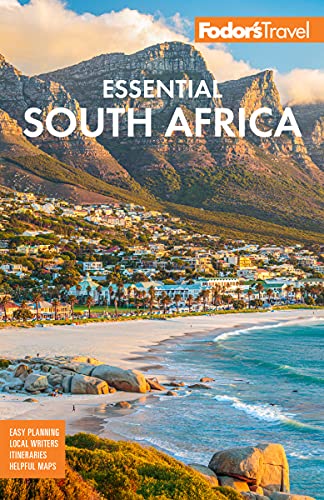South Africa Today
The Rainbow Nation
The "Rainbow Nation" of South Africa is one in which people intermingle racially far more than they did in the past. You can expect to find a once-segregated population living side by side as equals: as guests in game lodges, dining together in air-conditioned malls, and in the workplace.
However, vast economic disparities and racial tensions still exist. The physical legacy of apartheid remains, with large shantytowns inhabited by black South Africans; for many of the country's poor, things have not changed substantially since the 1990s. Black ownership of businesses has increased, but the wealth has often been transferred to a new black elite (former unionist leader Cyril Ramaphosa, for example). The tourism industry has begun evolving partnerships to improve the economic fortunes of rural communities and residents, who increasingly have shares in the lodges they work for. You'll find it's easier to meet South African blacks on an equal footing in Johannesburg than in Cape Town.
More than 80% of South Africans are Christians (the Zion African Church has the largest following). About 3% follow other religions, including Hinduism, Islam, and Judaism. About 13% of the population claim no affiliation.
Performing Arts
Cape Town, Durban, and Johannesburg all have lively arts scenes. Annual festivals, such as the National Arts Festival in Grahamstown in late June and/or early July, are great places to experience innovative performing- and visual-arts trends in the country.
On the music front, singer/songwriter Johnny Clegg, Jazz musician Hugh Masekela, and a cappella group Ladysmith Black Mambazo have all gained international fame; however, they are slowly being replaced internationally by the likes of Afro-fusion band Freshlyground and the dance music duo Goldfish.
Dance companies postapartheid have begun to use movement as a form of expression to explore the country's legacy. The dance form called Afro-fusion, named by Moving Into Dance Company's Sylvia Glasser, combines classic and traditional movements. Cape Town's Jazzart Dance Theatre, the oldest in the country, experiments with styles and expression.
Local theaters feature international as well as homegrown authors such as Athol Fugard, who often returns "home" from his residence in San Diego to direct his own works at the recently opened Fugard Theatre in Cape Town's District Six.
Literature
Most South African literature is published in English and Afrikaans, predominately because indigenous languages were not recognized and African experiences were not valued. Increasingly, however, works are being translated into other languages, often for a foreign market.
Fiction writers like Deon Meyer, Mike Nicholls, and Lauren Beukes have joined Nobel Prize winners Nadine Gordimer and J. M. Coetzee (who has also won the Booker Prize twice) in successfully flying the local literary flag in the international literary fiction market. Much of apartheid-era writing in the recent past tended toward realism and such themes as the white minority's sense of psychological and physical alienation and the black struggle living under the apartheid regime—but such topics are gradually fading away.




